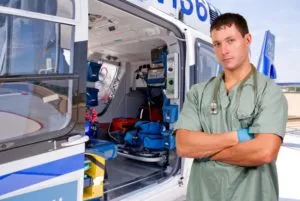Lauren Gilliland was previously a Traveler Advocate for Nurse First Travel Agency. While she is still working closely with the travelers, Lauren is currently transitioning into a new role. She is located in Raleigh, North Carolina.
What made you apply to become an Advocate?
I’ve been an ER nurse for almost nine years now, and I traveled with Nurse First travel nurse agency when it was still a brand new company. That’s how I met Jeremy.
However, with ER nursing, it’s emotionally draining more than anything. I knew I still wanted to be involved with healthcare and nursing, but not bedside working on patients. Back then, Jeremy was looking for 1099 recruiters to help with the business growth. I took that as a sign for me to transition into something different. I didn’t want to get too far away from nursing, just make a career pivot. All the stars kind of aligned, and here I am, around two years later, being an Advocate for him.
What’s the best and most challenging part of your job?
One of the biggest parts that I enjoy about my job is that I can relate to the travelers on a nurse level and not only be an empathetic ear. I know that means a lot and can be comforting because many recruiters and other companies don’t know anything about healthcare and how it is its own little niche. They can communicate with me differently and lean on me because they know I understand what they’re going through. I was a nurse and a traveler, so I’ve been there and done that.
One of the biggest challenges, I would say, is disrupting the industry. We aren’t the same as other people, and we genuinely are here because we care about the travelers and their best interests. We’re awesome and not here to like work against you or anything like that. We are trying to make a whole new movement on what people portray as travel agencies, and it’s difficult trying to prove ourselves, and it’s hard to bust through what the norm is.
If you had to describe what you do on the day-to-day with someone who knows nothing about Nurse First, what would you say?
A lot of the time, it’s relationship management. Before this, I had about 65 nurses that I was managing. It is a constant circle of movement, whether someone’s looking for a new contract and wants to go entirely somewhere else, or they’re on assignment and want to stay at the same place. Advocate means what it sounds like—instead of recruiting, we’re more focused on our relationships and advocating for these nurses. Especially when you have 65 nurses, you are constantly working out something. It’s a constant moving circle of everything.
For someone considering becoming an Advocate, what advice do you have?
Time management becomes crucial. Unlike a travel nurse assignment, where you clock in and out, there is no clocking out when you’re a Traveler Advocate, so it’s hard. Nurses still need you in the evenings. There’s not always a fire to put out, but it at least needs to be like, I heard you, let’s address this tomorrow morning or whenever. Our inboxes are constantly going off. A lot of work and time management skills need to go into play. I would recommend it to anyone that understands all those kinds of “cons,” if you will.
How much interaction do you have with the nurses you Advocate for?
The minimum is once a week. I want to let my travelers know that I’m still here, even if they don’t need me. It depends on who it is; I’ll either never hear from them until they need a new assignment, or I have the people we text almost every day. I’ve had some of my travelers for all the years I’ve been here, and we’re on a different level now. You start forming a relationship with these people because you’re the person they lean on. I always let them decide how they want to go about things. If they want to talk to me more and hang out, then they can reach out to me whenever and we’ll have a conversation.
Lastly, in terms of the nurses you work with, what traits do you think are most important for a traveling nurse?
You need to be flexible, versatile, and be able to adapt quickly to anything thrown at you. You don’t get orientation; you’re only taught how to be a nurse at their facility because they are so short-staffed. You need to know what you’re doing and have the flexibility for sure—that’s why you’re there.
Friendliness, communication, and respect are big components as well. You don’t know these people, but you have to be able to be thrown into their family, fit in, and converse effectively with their staff. Many people don’t think that way, but you’re their home to help fill a void in their staffing. You need to be respectful of that and follow their rules.
Interested in becoming a travel nurse? Check out our job board for the latest travel nurse jobs.


